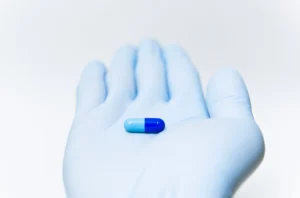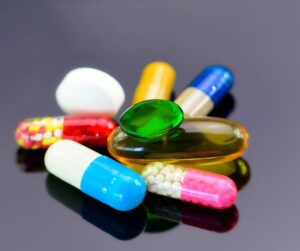Hycon delivers effective treatments and achieves optimal outcomes for innovators, prescribers, and patients. We understand the stakeholders’ needs and match them with the widest array of drug delivery solutions to give your therapy the best potential for success on the path from preclinical through to scale-up for Phases I-III and commercial supply.
FAQs
Here are some frequently asked questions about Product Development
What is the process for developing small molecule oral dosage forms?
- The development process typically begins with pre-formulation studies to assess the physicochemical properties of the active pharmaceutical ingredient (API) and select suitable excipients.
- Next, formulation development involves the design and testing of various dosage forms, such as tablets, capsules, or oral solutions, to optimize drug delivery.
- Analytical method development is then performed to ensure the product meets quality standards and regulatory requirements.
- Stability studies are conducted to assess the product's shelf-life under different storage conditions.
- Finally, process development involves the scale-up of the manufacturing process to produce commercial-scale batches.
What factors should be considered when selecting excipients for small molecule oral dosage forms?
- Excipients play a crucial role in drug formulation, affecting drug release, bioavailability, and patient acceptability.
- Factors to consider when selecting excipients include their safety profile, compatibility with the API, and impact on drug stability.
- Excipients may also be selected based on their ability to enhance the product's appearance, taste, or texture.
How are small molecule oral dosage forms tested for bioavailability?
- Bioavailability studies are typically conducted in preclinical and clinical settings to assess the rate and extent of drug absorption.
- In preclinical studies, pharmacokinetic parameters such as area under the curve (AUC) and maximum plasma concentration (Cmax) are measured.
- In clinical studies, bioequivalence studies are conducted to compare the bioavailability of the test formulation with that of a reference formulation.
What are some common challenges in developing small molecule oral dosage forms?
- Challenges include poor solubility of the API, which can affect drug absorption and bioavailability.
- Formulating pediatric dosage forms that are palatable and easy to administer can also be challenging.
- Ensuring the stability of the formulation under different storage conditions is another common challenge.
How can formulation technologies improve the performance of small molecule oral dosage forms?
- Technologies such as controlled-release formulations can help extend drug release and improve patient compliance.
- Nanotechnology-based formulations can enhance solubility and bioavailability of poorly soluble drugs.
- Taste-masking technologies can improve the palatability of pediatric formulations.
What regulatory requirements must small molecule oral dosage forms meet?
- In the US, small molecule oral dosage forms are regulated by the Food and Drug Administration (FDA) under the Federal Food, Drug, and Cosmetic Act.
- In the EU, the European Medicines Agency (EMA) regulates small molecule oral dosage forms under the European Pharmacopoeia.
- Regulations require that products meet quality, safety, and efficacy standards and undergo rigorous testing before approval.
How can Hycon help small molecule oral dosage form development?
- CDMOs provide expertise in formulation, analytical method development, and manufacturing, accelerating the development process.
- CDMOs also offer access to specialized equipment and technologies, such as high-throughput screening and nanotechnology, to optimize drug delivery.
How can small molecule oral dosage forms be optimized for pediatric use?
- Pediatric dosage forms must be age-appropriate, palatable, and easy to administer.
- Technologies such as orodispersible tablets, chewable tablets, and flavored suspensions can improve patient acceptability.
- Dosing devices, such as oral syringes and droppers, can help ensure accurate dosing.
What are some considerations when scaling up small molecule oral dosage form production?
- Scaling up requires careful process optimization to ensure consistent product quality and performance.
- Factors such as equipment design, process parameters, and batch size must be considered.
- Regulatory requirements for good manufacturing practices (GMP) and quality control must also be met.
How does Hycon support the commercialization of small molecule oral dosage forms?
- Hycon can provide commercial-scale manufacturing, packaging, and distribution services.
- We also offer regulatory support, ensuring that products meet quality and compliance standards.
- Hycon can also assist with lifecycle management, providing ongoing support for product line extensions and reformulations.










